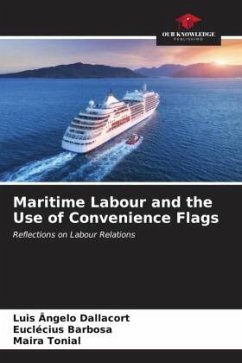The aim of this work is to investigate the effects of the use of flags of convenience on the labour relations of seafarers. The phenomenon of globalisation has brought new economic thinking and with it states have started to relax their laws in favour of financial development. In the same vein, companies sought to increase their profits and began to invest in these countries, especially those with more lenient labour and tax regulations. In this way, the big companies that own the cruise ship fleets have sought out countries with laws that are favourable to their interests. With this in mind, an analysis was made of the connecting factors that are appropriate for resolving possible conflicts arising from divergent laws, highlighting the difference between the connecting factors used to resolve labour conflicts arising from international labour contracts and international marine labour contracts, since the latter have certain peculiarities.
Bitte wählen Sie Ihr Anliegen aus.
Rechnungen
Retourenschein anfordern
Bestellstatus
Storno









